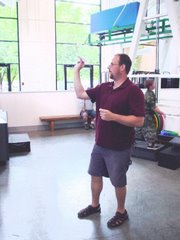□ There are two dualisms in the heart of my thinking. Dualism of knowing and knowledge and dualism of structure and agency. Integrating these would provide me with the overall theoretical framework.
□ I never articulate the very specific mechanisms or elementals of why networks matter for learning.
Why do networks matter for learning? This is the question I think I have been trying to answer for a while now. The attempt to answer leads me to tackle what is learning? Change in K. Then, what is K? Then, zooming in and out on causal arguments as well as human/org nature questions. This is the stuff that bogs me down for now.
This is also where I tried to start by critiquing the two black boxes. This becomes an argument about how to think about org learning. I talk about how to talk about the phenomenon of interest rather than the phenomenon.
Since March and Cyert, and Leavitt and March, we have been talking about the org as an entity that behaves. From a network perspective, it is a node that is suffused with networks at higher (nations? Orgs?) and lower (groups, individuals) levels. If we define K as socially constructed, and OL as a social process of changes in socially constructed knowledge, than it is clear we should be serious about this social business. We need to know what kinds of differences in what kinds of social contexts will matter (like
To say that K is socially constructed means (this can map to various create, retain, and transfer stories? Also, what about people like Carley and Argote who see whole thing as network and want to talk about flows among people, tasks, and artifacts.):
- people rely on ties to acquire information before creating knowledge
- people accept as legitimate knowledge that is transmitted over different networks and/or ties (threshold models and social influence in
- the info available is bounded by the cognitive and network horizons of the individual (search problems; Rob Cross and Borgatti’s work).
- risk-taking in knowledge creation is a function of trust.
- creating knowledge creates new ties, or mediates existing ties if the knowledge is created across ties or is communicated across ties.
- variation in knowledge creation is a function of closure to generate knowledge and heterogeneity to cross fertilize knowledge.
To say that learn is a social process means: that a person learns when they change they are either creating or absorbing knowledge; in the case of creating knowledge, what they “know” is partly a function of the previous knowledge acquired through links. In the case of absorbing knowledge, they are also of course using links in their immediate social space. Furthermore, the cementing of individual learning as knowledge that can reasonably be kept, transferred, and used for future action, comes about as actions are assessed and reflected upon. This is true for both creating and absorbing knowledge. The means for assessing and reflecting upon knowledge-based action, who one is connected to, how the norms of that organization are embedded in ties, and how the social context will effect legitimation processes all come into play. These all have a network component.
Another possibility is to adapt lave and Lave and Wegner’s social learning theory. You learn by acquiring recognized expertise. Legitimate peripheral participation. Well, your peripheral position is network observable. As is the core. Also, the competence in the core is socially stored, constantly reinterpreted, and socially recognized.
Part of the puzzle is knowledge search through networks.
Part of the puzzle is power and norms and institutional stuff that is embedded in ties and emerges from network dynamics.
Part of the puzzle is how knowledge/learning activity shape networks.
□ Take the three processes, the Argotean definition, and for each discuss how networks matter. Problem is it don’t line up with my paper hypos all that well.
| | Net effects |
| Creating | - Variation will be result of brokerage-closure balance. - Inter-org bridges will be important |
| Retaining | - Power and influence will matter for which ideas - |
| Transferring | - Network cohesion will matter for transfer of explicit knowledge - |
| | |
□ Just acknowledge that each chapter is in discussion with a different author working out of a different tradition.
Ch 2 is Burt- working out of social capital as a mechanism for advantage.
Ch3-4 is March- working out of behavioral view fo firm as adaptive entity.
This maps on to Argote:
Ch 2 is about how network structure will affect creation.
Ch 3 is about how nets will affect creation and retention because by looking at explor-exploit it is looking at type of knowledge created AND retained in round 1
Ch 4 is about how networks will affect all three because it is looking at how knowledge is created, retained, and transferred as org deal with adaptive pressures… (Ok, do Mg 101 really deal with adaptive pressures?)
